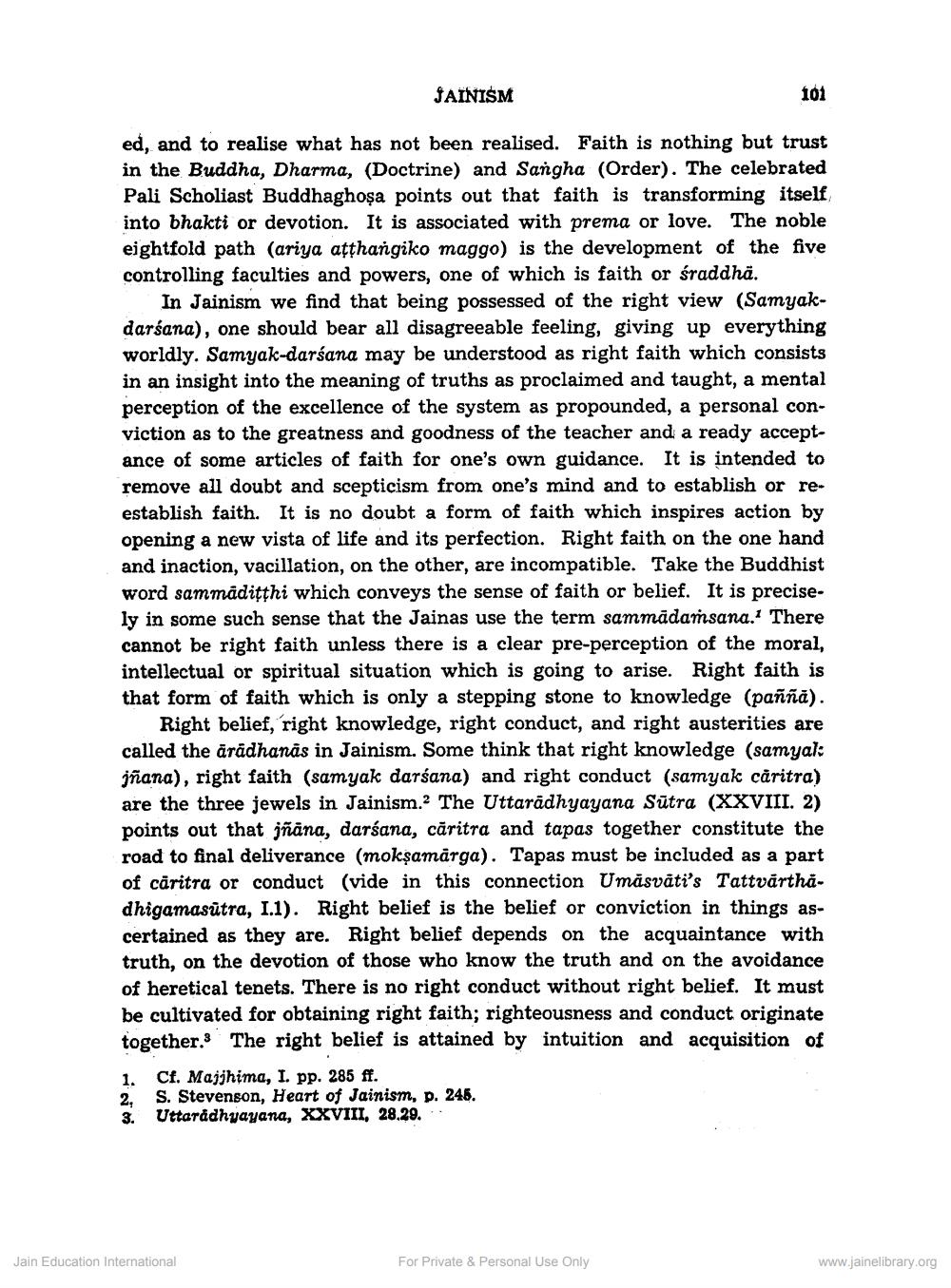________________
JAINISM
Jain Education International
ed, and to realise what has not been realised. Faith is nothing but trust in the Buddha, Dharma, (Doctrine) and Sangha (Order). The celebrated Pali Scholiast Buddhaghosa points out that faith is transforming itself into bhakti or devotion. It is associated with prema or love. The noble eightfold path (ariya atthangiko maggo) is the development of the five controlling faculties and powers, one of which is faith or éraddha.
In Jainism we find that being possessed of the right view (Samyakdarśana), one should bear all disagreeable feeling, giving up everything worldly. Samyak-darśana may be understood as right faith which consists in an insight into the meaning of truths as proclaimed and taught, a mental perception of the excellence of the system as propounded, a personal conviction as to the greatness and goodness of the teacher and a ready acceptance of some articles of faith for one's own guidance. It is intended to remove all doubt and scepticism from one's mind and to establish or reestablish faith. It is no doubt a form of faith which inspires action by opening a new vista of life and its perfection. Right faith on the one hand and inaction, vacillation, on the other, are incompatible. Take the Buddhist word sammăditthi which conveys the sense of faith or belief. It is precisely in some such sense that the Jainas use the term sammādamsana. There cannot be right faith unless there is a clear pre-perception of the moral, intellectual or spiritual situation which is going to arise. Right faith is that form of faith which is only a stepping stone to knowledge (paññā). Right belief, right knowledge, right conduct, and right austerities are called the aradhanās in Jainism. Some think that right knowledge (samyal: jñana), right faith (samyak darśana) and right conduct (samyak caritra) are the three jewels in Jainism. The Uttaradhyayana Sütra (XXVIII. 2) points out that jñāna, darśana, caritra and tapas together constitute the road to final deliverance (mokṣamarga). Tapas must be included as a part of caritra or conduct (vide in this connection Umäsväti's Tattvärthadhigamasutra, 1.1). Right belief is the belief or conviction in things ascertained as they are. Right belief depends on the acquaintance with truth, on the devotion of those who know the truth and on the avoidance of heretical tenets. There is no right conduct without right belief. It must be cultivated for obtaining right faith; righteousness and conduct originate together. The right belief is attained by intuition and acquisition of 1. Cf. Majjhima, I. pp. 285 ff.
2,
S. Stevenson, Heart of Jainism, p. 245. Uttaradhyayana, XXVIII, 28.29.
3.
101
For Private & Personal Use Only
www.jainelibrary.org




